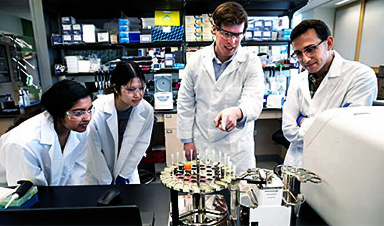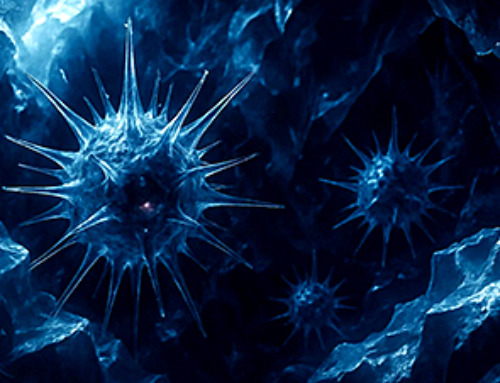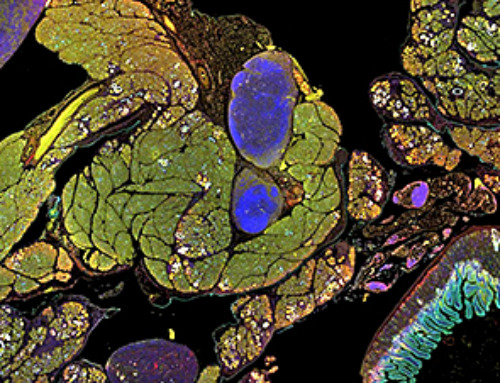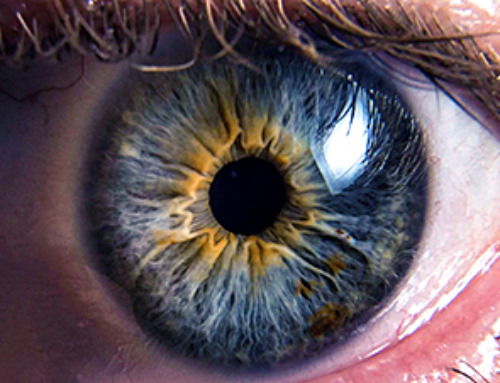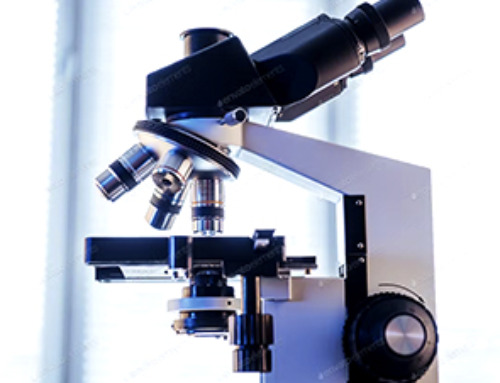An artificial intelligence system enables robots to conduct autonomous scientific experiments—as many as 10,000 per day—potentially driving a drastic leap forward in the pace of discovery in areas from medicine to agriculture to environmental science.
That artificial intelligence platform, dubbed BacterAI, mapped the metabolism of two microbes associated with oral health—with no baseline information to start with. Bacteria consume some combination of the 20 amino acids needed to support life, but each species requires specific nutrients to grow. The U-M team wanted to know what amino acids are needed by the beneficial microbes in our mouths so they can promote their growth.
“We know almost nothing about most of the bacteria that influence our health. Understanding how bacteria grow is the first step toward reengineering our microbiome,” said Paul Jensen, U-M assistant professor of biomedical engineering who was at the University of Illinois when the project started.Figuring out the combination of amino acids that bacteria like is tricky, however. Those 20 amino acids yield more than a million possible combinations, just based on whether each amino acid is present or not. Yet BacterAI was able to discover the amino acid requirements for the growth of both Streptococcus gordonii and Streptococcus sanguinis.
To find the right formula for each species, BacterAI tested hundreds of combinations of amino acids per day, honing its focus and changing combinations each morning based on the previous day’s results. Within nine days, it was producing accurate predictions 90% of the time.
Unlike conventional approaches that feed labeled data sets into a machine-learning model, BacterAI creates its own data set through a series of experiments. By analyzing the results of previous trials, it comes up with predictions of what new experiments might give it the most information. As a result, it figured out most of the rules for feeding bacteria with fewer than 4,000 experiments.
“When a child learns to walk, they don’t just watch adults walk and then say ‘Okay, I got it,’ stand up, and start walking. They fumble around and do some trial and error first,” Jensen said.
“We wanted our AI agent to take steps and fall down, to come up with its own ideas and make mistakes. Every day, it gets a little better, a little smarter.”
Little to no research has been conducted on roughly 90% of bacteria, and the amount of time and resources needed to learn even basic scientific information about them using conventional methods is daunting. Automated experimentation can drastically speed up these discoveries. The team ran up to 10,000 experiments in a single day.
But the applications go beyond microbiology. Researchers in any field can set up questions as puzzles for AI to solve through this kind of trial and error.
“With the recent explosion of mainstream AI over the last several months, many people are uncertain about what it will bring in the future, both positive and negative,” said Adam Dama, a former engineer in the Jensen Lab and lead author of the study. “But to me, it’s very clear that focused applications of AI like our project will accelerate everyday research.”
News
Studies detail high rates of long COVID among healthcare, dental workers
Researchers have estimated approximately 8% of Americas have ever experienced long COVID, or lasting symptoms, following an acute COVID-19 infection. Now two recent international studies suggest that the percentage is much higher among healthcare workers [...]
Melting Arctic Ice May Unleash Ancient Deadly Diseases, Scientists Warn
Melting Arctic ice increases human and animal interactions, raising the risk of infectious disease spread. Researchers urge early intervention and surveillance. Climate change is opening new pathways for the spread of infectious diseases such [...]
Scientists May Have Found a Secret Weapon To Stop Pancreatic Cancer Before It Starts
Researchers at Cold Spring Harbor Laboratory have found that blocking the FGFR2 and EGFR genes can stop early-stage pancreatic cancer from progressing, offering a promising path toward prevention. Pancreatic cancer is expected to become [...]
Breakthrough Drug Restores Vision: Researchers Successfully Reverse Retinal Damage
Blocking the PROX1 protein allowed KAIST researchers to regenerate damaged retinas and restore vision in mice. Vision is one of the most important human senses, yet more than 300 million people around the world are at [...]
Differentiating cancerous and healthy cells through motion analysis
Researchers from Tokyo Metropolitan University have found that the motion of unlabeled cells can be used to tell whether they are cancerous or healthy. They observed malignant fibrosarcoma cells and [...]
This Tiny Cellular Gate Could Be the Key to Curing Cancer – And Regrowing Hair
After more than five decades of mystery, scientists have finally unveiled the detailed structure and function of a long-theorized molecular machine in our mitochondria — the mitochondrial pyruvate carrier. This microscopic gatekeeper controls how [...]
Unlocking Vision’s Secrets: Researchers Reveal 3D Structure of Key Eye Protein
Researchers have uncovered the 3D structure of RBP3, a key protein in vision, revealing how it transports retinoids and fatty acids and how its dysfunction may lead to retinal diseases. Proteins play a critical [...]
5 Key Facts About Nanoplastics and How They Affect the Human Body
Nanoplastics are typically defined as plastic particles smaller than 1000 nanometers. These particles are increasingly being detected in human tissues: they can bypass biological barriers, accumulate in organs, and may influence health in ways [...]
Measles Is Back: Doctors Warn of Dangerous Surge Across the U.S.
Parents are encouraged to contact their pediatrician if their child has been exposed to measles or is showing symptoms. Pediatric infectious disease experts are emphasizing the critical importance of measles vaccination, as the highly [...]
AI at the Speed of Light: How Silicon Photonics Are Reinventing Hardware
A cutting-edge AI acceleration platform powered by light rather than electricity could revolutionize how AI is trained and deployed. Using photonic integrated circuits made from advanced III-V semiconductors, researchers have developed a system that vastly [...]
A Grain of Brain, 523 Million Synapses, Most Complicated Neuroscience Experiment Ever Attempted
A team of over 150 scientists has achieved what once seemed impossible: a complete wiring and activity map of a tiny section of a mammalian brain. This feat, part of the MICrONS Project, rivals [...]
The Secret “Radar” Bacteria Use To Outsmart Their Enemies
A chemical radar allows bacteria to sense and eliminate predators. Investigating how microorganisms communicate deepens our understanding of the complex ecological interactions that shape our environment is an area of key focus for the [...]
Psychologists explore ethical issues associated with human-AI relationships
It's becoming increasingly commonplace for people to develop intimate, long-term relationships with artificial intelligence (AI) technologies. At their extreme, people have "married" their AI companions in non-legally binding ceremonies, and at least two people [...]
When You Lose Weight, Where Does It Actually Go?
Most health professionals lack a clear understanding of how body fat is lost, often subscribing to misconceptions like fat converting to energy or muscle. The truth is, fat is actually broken down into carbon [...]
How Everyday Plastics Quietly Turn Into DNA-Damaging Nanoparticles
The same unique structure that makes plastic so versatile also makes it susceptible to breaking down into harmful micro- and nanoscale particles. The world is saturated with trillions of microscopic and nanoscopic plastic particles, some smaller [...]
AI Outperforms Physicians in Real-World Urgent Care Decisions, Study Finds
The study, conducted at the virtual urgent care clinic Cedars-Sinai Connect in LA, compared recommendations given in about 500 visits of adult patients with relatively common symptoms – respiratory, urinary, eye, vaginal and dental. [...]
